-
Two Israeli teenagers receive long sentences for murdering Palestinian boy
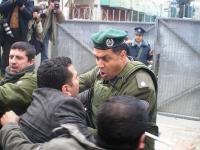
Two Israeli teenagers were sentenced to long jail terms for kidnapped the Palestinian teenager Mohammed Abu Khdeir in 2014, and burning him to death. The older of the two, aged 17, was sentenced to life in prison, while the other teenager, a 16-year old, was sentenced to twenty-one years. The 16-year-old Abu Khdeir was grabbed off the street and beaten. He was then taken to a forest outside Jerusalem, and was set afire while he was still alive.
-
-
U.K. regulators to investigate political broadcast critical of Turkey, Muslims
OFCOM, the U.K. communication regulator, said it was considering more than thirty complaints about a political broadcast by UKIP, the Euro-skeptic, anti-immigration populist party. OFCOM said that UKIP’s Wednesday night broadcast on ITV and the BBC may have crossed the line in giving racial offense, promoting Islamophobia, and engendering bias toward Turkey.
-
-
Bin Laden’s 9/11 plot “inspired” by EgyptAir flight 990 crash: Al-Qaeda
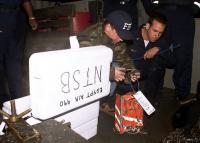
Osama bin Laden planned the 9/11 terrorist attacks after being “inspired” by a chance discussion about a plane crash into the Atlantic Ocean. An al-Qaeda publication claims that bin-Lade, discussing EgyptAir Flight 990 — which crashed into the Atlantic Ocean during its journey from Los Angeles to Cairo, killing all 217 people on board – asked: “Why didn’t he crash it into a building?”
-
-
U.K.’s anti-radicalization program “sowing mistrust and fear” in Muslim communities: Watchdog
David Anderson QC, the independent reviewer of the U.K.. terrorism laws, said that the government’s flagship anti-radicalization program, Prevent, should be reviewed because it is sowing mistrust and fear in the Muslim community. Anderson said that the program, particularly its requirement that schools spot and report signs of radicalization in students, has become a “significant source of grievance” among British Muslims, encouraging “mistrust to spread and to fester.”
-
-
Florida declares state of emergency in four counties with Zika virus

Florida Governor Rick Scott has declared a state of emergency in four counties where nine residents have been diagnosed with the Zika virus. Miami-Dade in south Florida, Hillsborough in Tampa Bay, Lee County in southwest Florida, and Santa Rosa County in Florida Panhandle have all been affected under the executive order. Health officials believe, however, that the residents became sick outside the United States.
-
-
Britain: Russia’s goal in Syria is to carve out Alawite mini-state for Assad
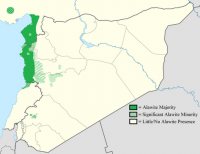
Philip Hammond, Britain’s foreign minister, has said that Russia’s real goal in Syria was to carve out an Alawite mini-state in Syria for its ally President Bashar al-Assad. Hammond said this was the reason why Russia’s massive bombing raids have targeted the Syrian opposition forces instead of fighting ISIS. Hammond’s comments offered a rare insight into the Western assessment of the Kremlin’s objectives for Syria.
-
-
Iran nuclear deal: how to ensure compliance?
The U.S. and European countries lifted nuclear-related sanctions against Iran on 16 January as part of a deal in which the country agreed to limit its nuclear activities and accept a new system of international inspections. The issue now is how the international community can be confident that Iran is not violating the deal. Iran agreed never to develop nuclear weapons when it signed the Nuclear Non-Proliferation Treaty in 1968. There’s no ironclad method to prevent Iran from breaking its promise and developing nuclear weapons, but this new agreement builds in a number of strong protections. In conjunction with U.S. and allied intelligence capabilities, these rules mean even a sophisticated and carefully executed secret plan would carry a high risk of detection.Looking at the deal as a whole, Iran’s best strategy for acquiring nuclear weapons would simply be to wait for restrictions on its declared enrichment program to be lifted. Assuming that the deal does not fall apart sooner, most of those provisions are scheduled to expire in 2030. In the meantime, the deal helps make a nuclear-armed Iran a less immediate prospect.
-
-
Calls for banning Muslims from entering U.S. impractical, harmful: Expert
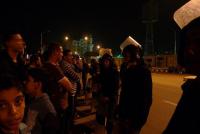
Duke sociologist Christopher Bail, who studies how anti-Muslim organizations use social media, says that calls to ban immigration of Muslims to the United States are missing two important points. First, there is no conceivable mechanism whereby the United States could identify Muslims — short of visual cues such as headdress or religious garb, which are not worn by most Muslims. Second, and perhaps more importantly, it is surprising that people think that groups such as ISIS could not disguise terrorists they want to send to the United States as non-Muslims.
-
-
DEA, European authorities uncover massive Hezbollah drug, money-laundering operation

The U.S. Drug Enforcement Administration (DEA) yesterday announced what the agency described as a “significant enforcement activity,” including arrests targeting Lebanese Hezbollah’s External Security Organization Business Affairs Component (BAC), which is involved in international criminal activities such as drug trafficking and drug proceeds money laundering. These proceeds are used to purchase weapons for Hezbollah for its activities in Syria.
-
-
Aussie stationery chain pulls world globe which names Palestine, omits Israel
The Australian stationery chain Typo has stumbled into one of the world’s most contentious issues – and had to pull a line of globes which named Palestine but omitted the label “Israel.” Israel’s name was not omitted altogether: The globe was designed so that Israel and twelve other small countries were represented by a number on the map, corresponding to a number in a legend at the base of the globe. The globe sparked charges of anti-Semitism, but the company’s decision to halt production of the globes has led to boycott threats by Palestine advocates.
-
-
Brennan Center sues DHS, DOJ to make “Countering Violent Extremism” records public

The Brennan Center for Justice at NYU School of Law last week sued DHS and the Department of Justice under the Freedom of Information Act (FOIA) for records pertaining to an inter-agency initiative known as “Countering Violent Extremism” (CVE). The CVE initiative is designed to identify and preempt Americans from becoming involved in “violent extremism” and is being implemented in Muslim communities in several parts of the country, including the three formally designated pilot cities of Los Angeles, Boston, and Minneapolis-St. Paul.
-
-
Colombia urges U.S. to remove FARC from U.S. terror watch list
Colombia’s president Juan Manuel Santos said in an interview that he would like the United States to remove the Revolutionary Armed Forces of Colombia (FARC), a Marxist rebel group, which had fought successive Colombian governments since the early 1960s, from the U.S. list of terrorist organizations. He also said he would ask the U.S. authorities to suspend drug warrants against FARC commanders if a deal is finally signed to bring to an end the country’s five-decade civil war.
-
-
Canada’s intelligence agency halts intelligence sharing with international partners
Canada’s Communications Security Establishment (CSE), the country electronic signals intelligence agency, said it has stopped sharing intelligence with several close international partners after disclosing it had illegally collected the communication metadata of Canadian citizens in the process of eavesdropping on foreign communications. In a report to parliament last Thursday, CSE said the breach was unintentional, and that it had been discovered internally in 2013.
-
-
Boko Haram attacks force more than 1 million children from school in northeastern Nigeria

Violence and attacks against civilian populations in northeastern Nigeria and its neighboring countries have forced more than one million children out of school, UNICEF said on Tuesday. The number of children missing out on their education due to the conflict adds to the estimated eleven million children of primary school age who were already out of school in Nigeria, Cameroon, Chad, and Niger before the onset of the crisis. Across Nigeria, Cameroon, Chad, and Niger, over 2,000 schools remain closed due to attacks by Islamist group Boko Haram and the military campaign conducted against it — some of these schools for more than a year — and hundreds have been attacked, looted, or set on fire.
-
-
Boko Haram burns children to death in attack on Nigerian village
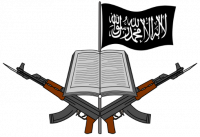
Boko Haram Islamist extremists have burned children to death in an attack on the Nigerian village of Dalori Saturday evening. In all, sixty-five people died in the attack. The militants set the buildings on fire, and as the fire spread, they shot people who were attempting to escape the flames.
-
More headlines
The long view
Preventing Another 'Jan. 6' Starts by Changing How Elections Are Certified, Experts Say
The 2024 presidential election may be a rematch between President Joe Biden and former President Donald Trump, but preventing a repeat of Jan. 6, 2021 — when false claims of a stolen election promoted by Donald Trump and his allies led to an insurrection at the U.S. Capitol —will be top of mind this election year. Research finds broad support among public for nonpartisan certification commissions.
States Rush to Combat AI Threat to Elections
This year’s presidential election will be the first since generative AI became widely available. That’s raising fears that millions of voters could be deceived by a barrage of political deepfakes. Congress has done little to address the issue, but states are moving aggressively to respond — though questions remain about how effective any new measures to combat AI-created disinformation will be.
Chinese Government Hackers Targeted Critics of China, U.S. Businesses and Politicians
An indictment was unsealed Monday charging seven nationals of the People’s Republic of China (PRC) with conspiracy to commit computer intrusions and conspiracy to commit wire fraud for their involvement in a PRC-based hacking group that spent approximately 14 years targeting U.S. and foreign critics, businesses, and political officials in furtherance of the PRC’s economic espionage and foreign intelligence objectives.
European Arms Imports Nearly Double, U.S. and French Exports Rise, and Russian Exports Fall Sharply
States in Europe almost doubled their imports of major arms (+94 per cent) between 2014–18 and 2019–23. The United States increased its arms exports by 17 per cent between 2014–18 and 2019–23, while Russia’s arms exports halved. Russia was for the first time the third largest arms exporter, falling just behind France.
LNG Exports Have Had No Impact on Domestic Energy Costs: Analysis
U.S. liquified natural gas (LNG) exports have not had any sustained and significant direct impact on U.S. natural gas prices and have, in fact, spurred production and productivity gains, which contribute to downward pressure on domestic prices.
